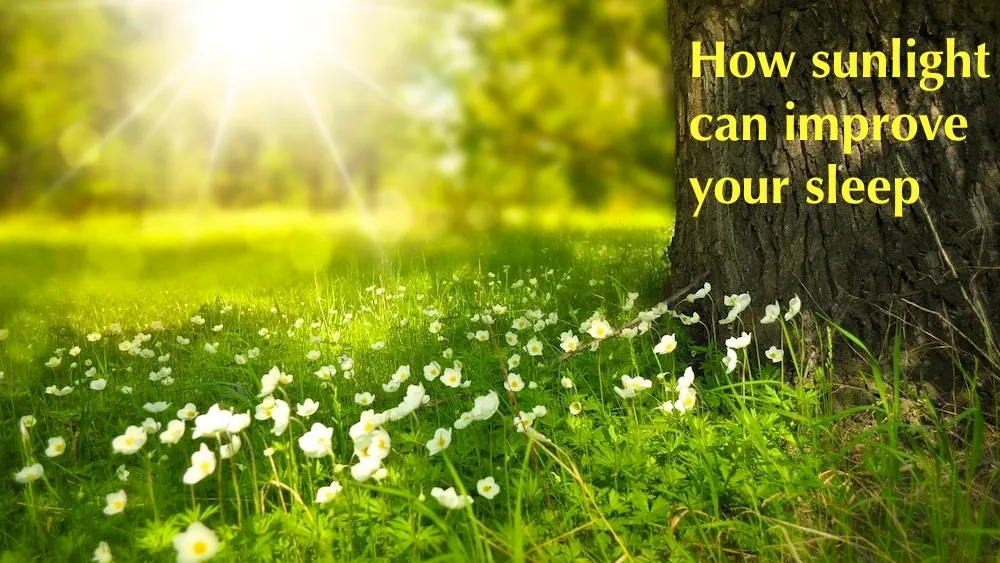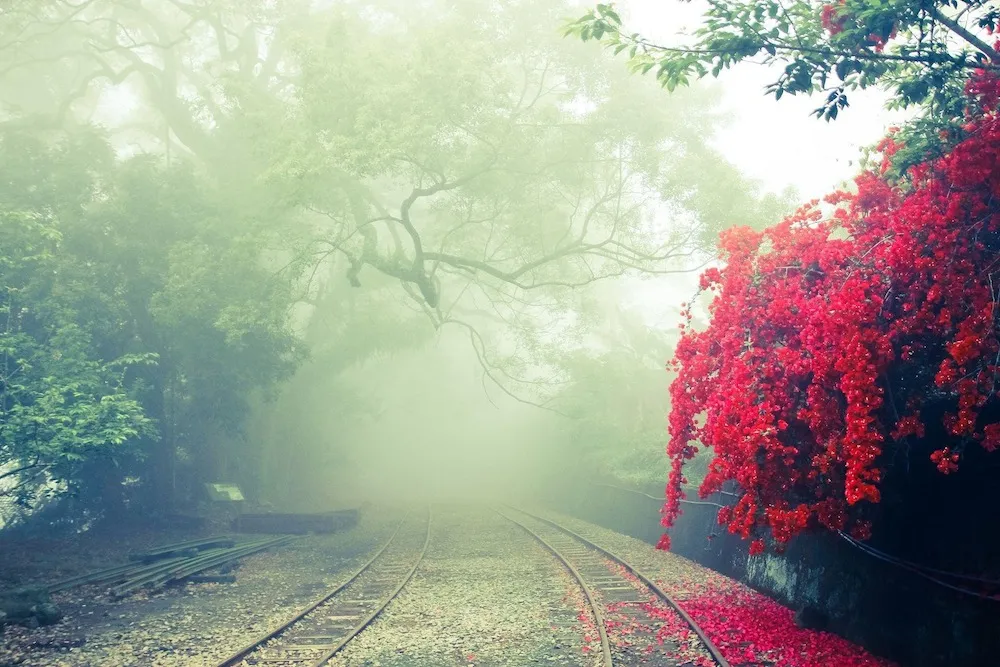
Could getting outside more often improve your sleep? It seems likely, and it's not just due to the effects of exercise.
How often have you found that after a trip to the seaside or countryside – even just for a day – that your sleep improves? Usually the reasoning behind this is, "It's that fresh country/sea air." In fact, it could just be the exposure to natural daylight, whether you're exercising or relaxing in the sun.
We are often warned about the importance of a dark environment to induce a good night's sleep. But we don't hear so much about the importance of getting enough light during the day to a good night's sleep. According to a recent post on the BBC website, exposure to daylight has a significant effect on our circadian rythms, and it can promote good sleep at night.

Most of us spend almost all our working lives indoors these days.
Most modern humans, unlike our distant ancestors, spend much of the day indoors. The effects of Seasonal Affective Disorder, or SAD, where people suffer depression and fatigue in the winter months due to light deprivation, are well known.
But few of us are aware of the wider implications of general light deprivation. According to some of the researchers, this is partly because there is little financial support available to fund research into the health effects of light, which is freely available and cannot be patented.
Researchers at the University of North Carolina found that getting enough exposure to daylight had some effect in alleviating non-seasonal depressive symptoms. The amount of light recommended for therapeutic benefits is 2,500 lux of white, broadband light at the cornea for two hours, or 10,000 lux for 30 minutes.
This is roughly equivalent to being outside for two hours on a cloudy day or for 30 minutes on a sunny (but not excessively bright) day.

SourceEven on a cloudy day, you can improve your sleep by getting outside – but you'll need to stay out a bit longer.
How light affects the hormones
Levels of melatonin, a hormone that is secreted by the pineal gland, increase at night and fall during the day. Scientific research has shown that exposure to light during the night can suppress melatonin production, and that the amount of melatonin suppressed increases according to the intensity of the light.
Research into the effect of bright light on cortisol levels found that levels of the adrenal hormone cortisol fell after exposure to bright light in the morning. This suggests that exposure to morning sunshine could have significant effects on the adrenal response, and as cortisol plays a role in metabolism, it has implications for weight management.
If you live in a country that doesn't get much sunlight, don't despair. Research from sleep medicine experts suggests that people who get little exposure to bright light may become more sensitive to moderate levels of light.
Another finding is that bright light can improve alertness. I have certainly found that if I'm driving when feeling tired, the effects of driver's fatigue worsen when I leave the city lights and drive into the dark countryside. This happened on a late night journey recently, and although I had two friends in the car who were eager to get home, I had to pull in to a layby and have a 10-minute nap.
It may also explain why I never feel tired during my many hillwalks, even if I've had to drag myself out of bed at some ridiculously early hour. And when I lived in London and worked in an office, I used to cycle to work most days. I always felt more alert when I arrived at the office after a cycle ride than when I'd taken the underground.
Light therapy

A light therapy lamp.
If you're a nightshift worker, or if you really can't get outside during the day, light therapy can help. Light therapy lamps are widely available online, usually delivering around 10,000 lux, and recommended for use in the first hour after getting out of bed.

I was inspired to research this topic after reading the article that appeared on the BBC website (mentioned above). I went out for a walk in the sunshine first thing this morning, and I'm going to try and do this every morning from now on. I usually sleep quite well, but occasionally I get insomnia. It will be interesting to see if my quality of sleep improves.
Main photo by Larisa Koshkina
Posted from my blog with SteemPress : http://ramblingandscrambling.co.uk/health/a-natural-sleep-remedy-get-outside/


